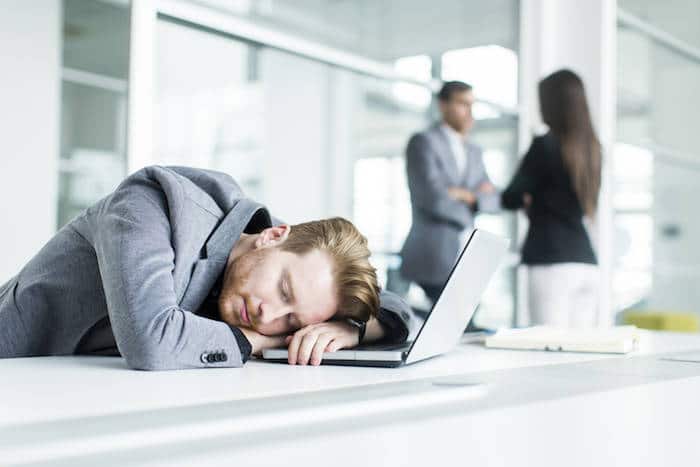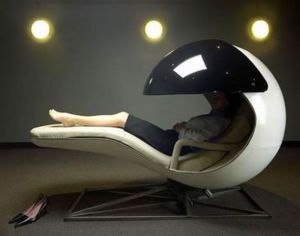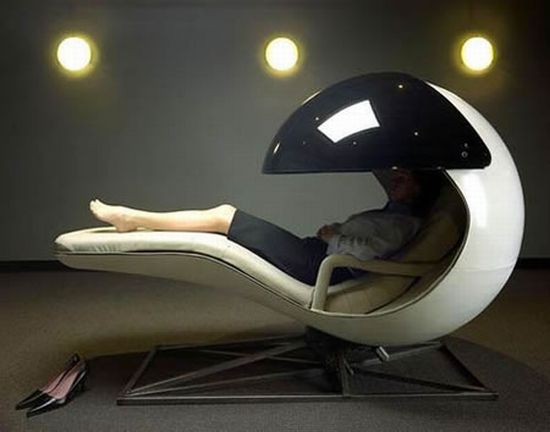
There is a general consensus among most people that we know everything about sleep: how much we need and how it impacts us. Yet as a society we continue to deprive ourselves the busier we get, the more connected we are and the longer we gaze at the bright lights of technology mere minutes before trying to doze off for the night. Often times, fatigue is out of our control, but we are still expected to perform to the best of our ability at work. And still, even the most well rested people are not immune from the excruciating afternoon energy crash.
There are serious consequences, especially in the workplace, to sleep deprivation. We’ve all spent time with someone who only got 4 hours of sleep but looks just as attentive, fresh, and up to his game as you, who spent 8 hours in bed. What is the rationale behind this? Well, the answer is: someone who is severely sleep deprived is in fact as attentive and awake as you are. Studies have found that the sleep deprived person can in fact deliver the exact same results as someone who isn’t sleep deprived in an exercise, when they give it their best shot.1 Surprising right?
But here’s the problem:
Whether we are sleep deprived or not, we lose focus at times. And that is precisely where the sleep deprived person lands in a trap. If we start to lose focus but have received the right amount of sleep, our brain can compensate for that and increase attention. If we are sleep deprived, our brain can’t refocus. The sleep-deprived person can only restore the ability for important decision making over time, when sleep is restored.2
The main result shows that the brain of the sleep-deprived individual is working normally sometimes, but intermittently suffers from something similar to a power failure. The worst part is that sleep-deprived people also don’t notice their decrease in productivity. So you know those days that you spent the entire afternoon surfing the web? Your sleep deprivation probably has something to do with that.
As employers become increasingly aware of the modern workers’ desire to achieve the perfect balance between body, soul, and career, they are starting to recognize that perhaps a quick nap in the afternoon is better for productivity than sending employees for a 1200 calorie Caramel Macchiato that almost certainly seals the fate on an impending mid-day work force crash.
Perhaps the secret to becoming more productive is not managing your time; but managing your energy.
Benefits to napping include:
- Naps can restore alertness, enhance performance, and reduce mistakes and accidents. A study at NASA on sleepy military pilots and astronauts found that a 30-minute nap improved performance by 34% and alertness 100%.
- Naps can increase alertness in the period directly following the nap and may extend alertness a few hours later in the day. Numerous studies have shown that workers become increasingly unproductive as the day wears on. Studies demonstrate that a 30 minute nap boosted the performance of workers to their beginning-of-day productivity levels.
- Avoid Burnout! Napping has psychological benefits. A nap can be a pleasant luxury, a mini-vacation. It can provide an easy way to get some relaxation and rejuvenation.
We are starting to see more and more forward thinking companies embrace napping as a productivity tool. Some have invested in special sleep stations/pods that are private, shut out external stimulus and recline to the optimum resting position. Another option for your company is to simply invest in one or several small “rest” rooms with a 
A couple things to keep in mind if you are considering napping at work is to encourage employees to take advantage of the program and remove the stigma. Perhaps people who nap are not lazy. They might be the smartest, most productive employees you have. Another is to make sure naps are kept short. Naps shorter than 20 or 30 minutes typically avoid sleep inertia, the feeling of grogginess and disorientation that comes from waking up from a deep sleep.
It may take some time for American workers to appreciate what their global counterparts have known for years; a well-done nap trumps other methods for its positive effects on well-being and productivity—especially in the workplace. For now, even the most straightforward strategies will have the chance to make a real difference in today’s workplace. Whether you choose to purchase an official nap pod (complete with aromatherapy diffuser and noise-canceling headphones), or just allow workers to crash on a couch, embracing the human energy cycle is something savvy managers should give some serious consideration.
References:
- M. Chee, J. Chow Tan, H. Zheng. The Journal of Neuroscience. Lapsing during Sleep Deprivation Is Associated with Distributed Changes in Brain Activation. 2008. http://www.jneurosci.org/content/jneuro/28/21/5519.full.pdf
- P. Whitney, PhD, J. Hinson, PhD, M. Jackson, PhD. Sleep. Feedback Blunting: Total Sleep Deprivation Impairs Decision Making that Requires Updating Based on Feedback. 2015. https://www.ncbi.nlm.nih.gov/pmc/articles/PMC4402662/

